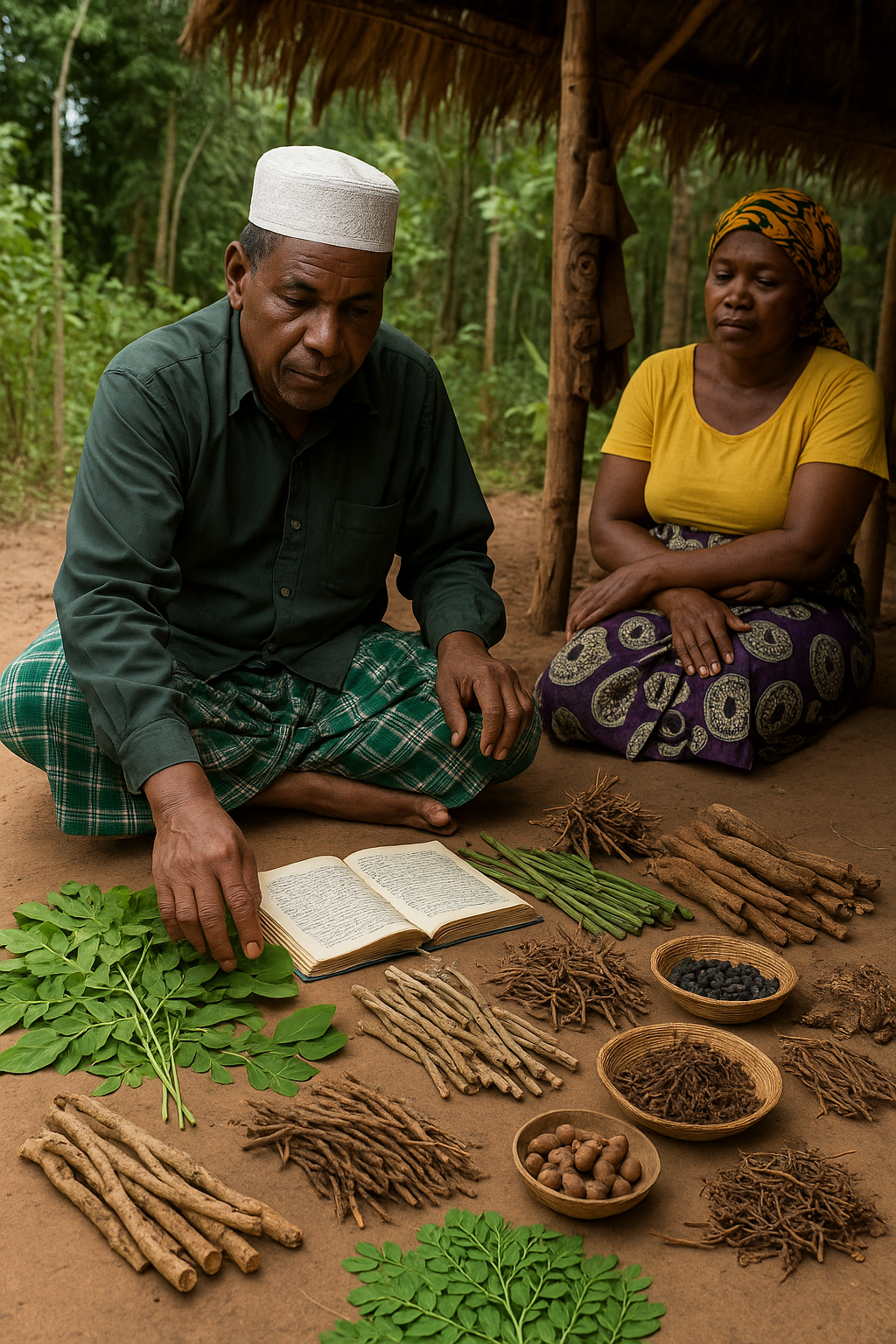In the lush landscapes surrounding Pugu Hills and Kisarawe District, cultural heritage runs deep. Among the Swahili and Zaramo communities—the original stewards of this land—ancient herbal knowledge and ritual traditions continue to shape daily life, healing practices, and spiritual beliefs. At Pugu Hills Eco Cultural Tourism, we celebrate and preserve this valuable heritage, offering visitors a rare chance to engage with Tanzania’s living cultural traditions.
The Power of Traditional Herbals
Both the Swahili and Zaramo people have long depended on local plants not only for food but for medicinal purposes, treating ailments ranging from malaria and stomachaches to spiritual imbalances. This herbal knowledge is often passed down orally through generations of waganga wa kienyeji (traditional healers).

Commonly Used Medicinal Plants in Kisarawe:
- Mwarobaini (Neem Tree) – Known as “the tree of 40 cures”, it’s used for treating fever, skin infections, and purifying the blood.
- Mchaichai (Lemongrass) – Boiled to make tea that relieves colds, fever, and digestive issues.
- Mlonge (Moringa) – A powerful immune booster; its leaves and seeds are used for nutrition and medicine.
- Mti Mkavu (Dry Bark Tree) – Its bark is crushed and boiled to treat chest infections or respiratory ailments.
- Mtumbaku wa Pori (Wild Tobacco) – Used externally for skin infections and wounds.
Many herbs are found right in the Pugu Forest Reserve, part of the Eastern Arc Mountains’ biodiversity hotspot, making it a living pharmacy for the locals.
Rituals: A Bridge Between the Physical and Spiritual Worlds
Rituals in Swahili and Zaramo culture are deeply intertwined with the cycle of life, spiritual beliefs, and community well-being. These practices often blend indigenous beliefs with Islamic traditions, resulting in a rich, syncretic spiritual heritage.
Important Rituals Include:
- Kusafisha (Cleansing Rituals): Used to remove misfortunes, these involve herbal baths, incense burning, and blessings by elders or healers.
- Maombi ya Mizimu (Ancestral Prayers): Offerings of food, kola nuts, or local brews are made to honor ancestors and seek protection or guidance.
- Tohara (Rites of Passage): Male and sometimes female circumcision ceremonies that mark the transition to adulthood.
- Kuondoa Pepo (Exorcisms): Conducted to remove evil spirits using a combination of drumming, chanting, and herbal smoke, especially in cases of mental illness or unexplained misfortunes.
- Midimu Dances: Ritual dances performed by Zaramo women to initiate girls into womanhood or during fertility and healing ceremonies.
3. Keeping Traditions Alive Through Eco-Cultural Tourism
At Pugu Hills Eco Cultural Tourism, we partner with local elders, traditional healers, and cultural experts to:
- Offer guided herbal walk tours through Pugu Hills Forest.
- Host cultural exchange sessions with Swahili and Zaramo healers.
- Provide safe and respectful opportunities to witness traditional rituals.
- Engage visitors in interactive workshops on natural remedies and cultural symbolism.
These experiences not only educate visitors but also support cultural preservation and create income opportunities for local communities, especially women and youth.
4. Why This Matters
In a world rapidly losing indigenous knowledge and biodiversity, the herbal and ritual traditions of the Swahili and Zaramo people offer more than cultural insight—they present models of sustainable living, natural wellness, and spiritual harmony.
By joining one of our tours or volunteering with our projects, you become part of a growing movement to protect and celebrate cultural identity, empower local communities, and heal both people and planet.
Plan Your Visit
Want to experience this living culture? Contact us to book a Herbal & Cultural Ritual Tour through the sacred landscapes of Kisarawe and Pugu Hills. Come with an open heart, and leave with ancient wisdom.
📧 admin@puguhills.co.tz
📞 +255 653 901 193
🌐 www.puguhills.co.tz

